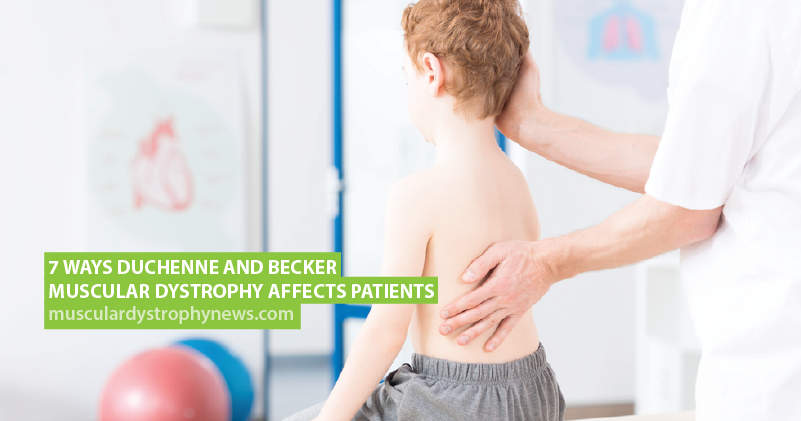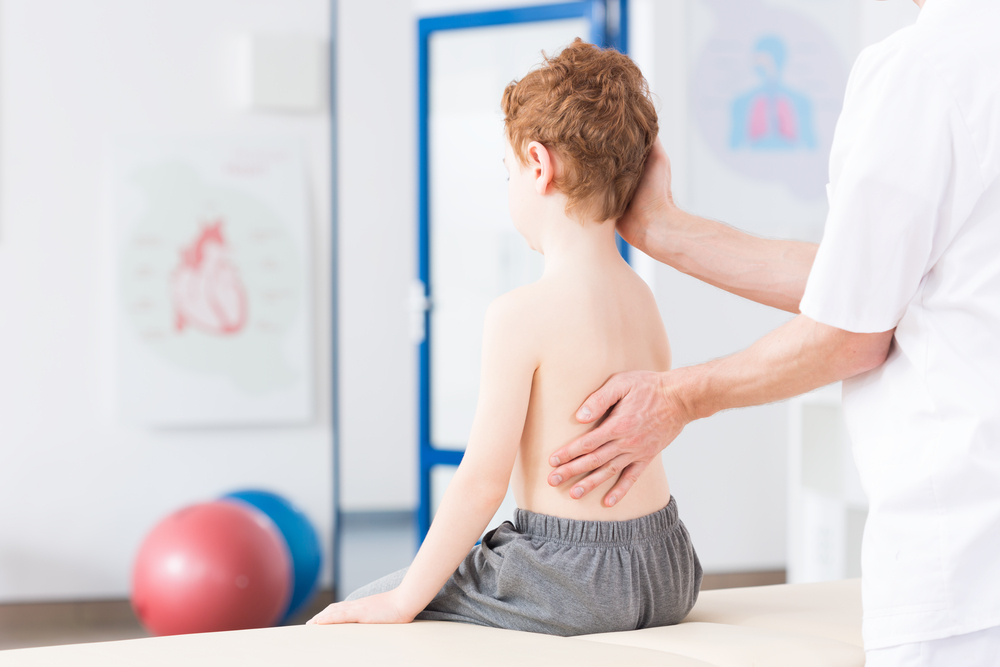7 Ways Duchenne and Becker Muscular Dystrophy Affects Patients
Written by |

Duchenne and Becker are two of the most common types of muscular dystrophy (MD). Both types of the disease mainly affect boys, with Duchenne MD (DMD) usually being diagnosed between the ages of three and five, and Becker MD (BMD) between the ages of 11 and 25. Although they tend to differ in severity, the effects of the diseases are similar in many ways. We’ve put together a list of the ways the disease affects patients based on information from the Muscular Dystrophy Foundation Australia.

Pain and Sensation
Duchenne and Becker muscular dystrophy patients don’t tend to suffer from pain from their condition or loss of sensations, but they may experience cramps and general aching which can be treated with over-the-counter medications.
Want to learn more about the latest research in Muscular Dystrophy News? Ask your questions in our research forum.

Heart
Because the heart is a muscle, it is also affected by Duchenne and Becker MD. Boys with both types of MD will undergo regular cardiac evaluations and in some cases may need a heart transplant if they are otherwise in good health. Angiotensin-converting enzyme (ACE) inhibitors and beta-blockers can be used to slow down the progression of heart disease if caught early enough. Boys with Duchenne MD are more likely to succumb to severe heart disease in their late teens or early twenties.
Fourteen-year-old Bryan talks about his life as a high school student with muscular dystrophy.

Respiratory Function
After the age of 10, boys with Duchenne MD are likely to start suffering from weakness of the diaphragm and other muscles needed to help with breathing. Many will require assistance to breathe. They will also be more susceptible to lung infections such as pneumonia.
Find out more about what it’s like living with a neuromuscular disease.

Intellectual Effects
It’s estimated that approximately a third of boys with Duchenne MD have learning difficulties but very few have severe problems in this area. Learning difficulties usually present in three ways: verbal learning and memory, focusing attention and emotional interaction.
Ringo the dog helps find potential new therapy for muscular dystrophy. Find out more.

Diet
Boys with Duchenne MD and Becker MD may suffer from constipation so they’ll need a diet which is high in fiber and liquids. Because many are unable to physically exercise they are unable to burn off calories so a low-calorie diet is usually also recommended.
Find out more about life as an adult with muscular dystrophy.

Exercise
Even if Duchenne or Becker MD patients are in wheelchairs, exercise is still important to improve muscle tone, circulation and to keep the heart as healthy as possible. Physiotherapy and water therapy are recommended. Occupational therapy can help with everyday tasks to improve independence.
Protein involved with muscular dystrophies and therapeutic potential identified. Read more here.

Emotional Effects
Children and young adults with Duchenne MD or Becker MD have the same emotional needs as anyone else. It’s important to treat them as individual people rather than someone with a disability. They need to undergo the same treatment as other members of the family and receive the same love, encouragement, honesty, respect and discipline as their brothers and sisters.
Find out about the nine main types of muscular dystrophy here.
Muscular Dystrophy News Today is strictly a news and information website about the disease. It does not provide medical advice, diagnosis or treatment. This content is not intended to be a substitute for professional medical advice, diagnosis, or treatment. Always seek the advice of your physician or another qualified health provider with any questions you may have regarding a medical condition. Never disregard professional medical advice or delay in seeking it because of something you have read on this website.





